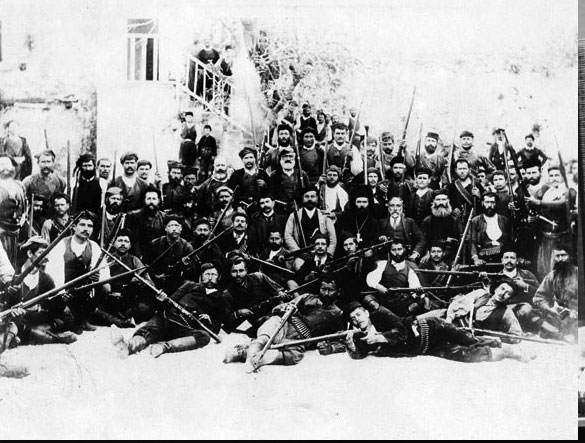Revolt Breaks Out in Crete

In 1905 a revolt broke out in Crete against the government that was aligned with the Ottomans. The revolutionary’s demanded that Crete become part of Greece. The revolution failed to achieve its ultimate goal but forced the government to make reforms.
The people of Crete, who were overwhelmingly Christian, had initially revolted against the Ottomans in 1897, demanding that they unite with Greece. The great powers had opposed that and instead agreed to a compromise where Crete would be an autonomous state under Ottoman control, however, the Great Powers decided to guarantee the independence of Crete. Many Cretans were not happy with the agreement and continued to push to become a part of Greece.
In February 1905, Eleftherios Venizelos, who was a past Prime Minister, held a meeting in his home town of Therisco with a group of other Cretan leaders. Three hundred armed men joined them. Soon 7,000 sympathizers came to Theriso that officially became the headquarter of what became known as the Theriso Revolt. The rebels opposed what they described as the authoritarian rule of Prince George, who was the ruler. Clashes soon broke out between the rebels and the Cretan police forces. The rebels informed the representatives of the Great Powers of there demands and even created there own provisional government. That government went as far as printing its own postal stamps. Soon an actual civil war had developed. The Great Powers were not sympathetic to the rebels and often intervened militarily on the side of the government. The general population, by and large, supported the goal of the revolt, and when the Cretan Assembly met in September 1905 and passed a series of reforms that were part of the demands of the rebels. Those laws limited the power of Prince as well as granting universal male suffrage.
While the Great Powers were actively intervening in the conflict on behalf of the government, they also recognized the fact that popular opinion was with the rebels. They began negotiating with the rebels. With the arrival of winter, the rebels found their situation deteriorating. Their worsening status convinced the rebels to surrender in return for both amnesty and the ability to go to Greece. In addition, the great powers agreed to several significant reforms that the insurgents demanded, including a Greek led police force.
In November, 1,000 rebels were transported to Greece, and the rebellion was officially called off. The Great Powers followed through on their promises.
Tensions remained in the aftermath of the revolt. Those tensions were not resolved until 1913 when Crete became part of Greece.
 >
>